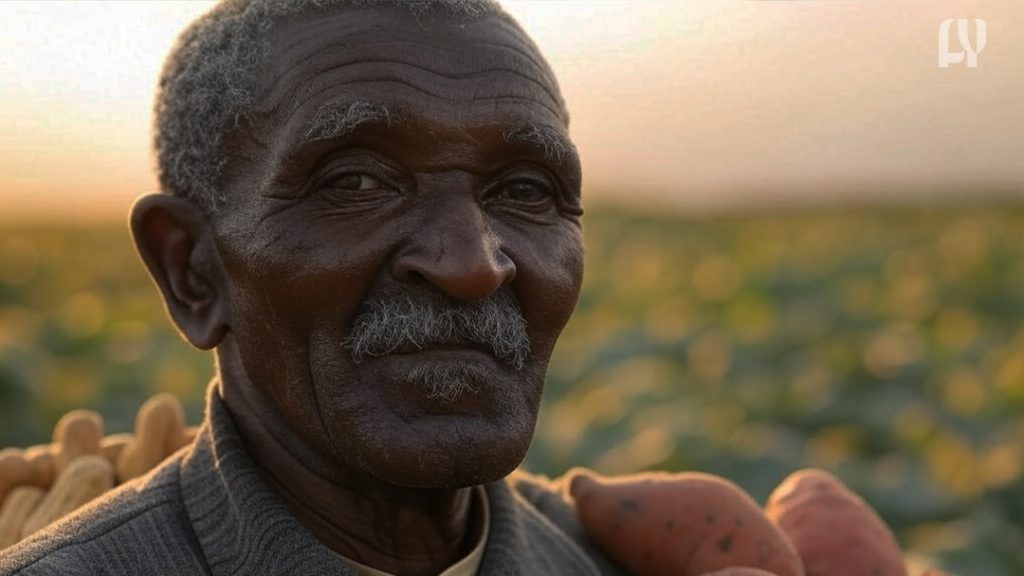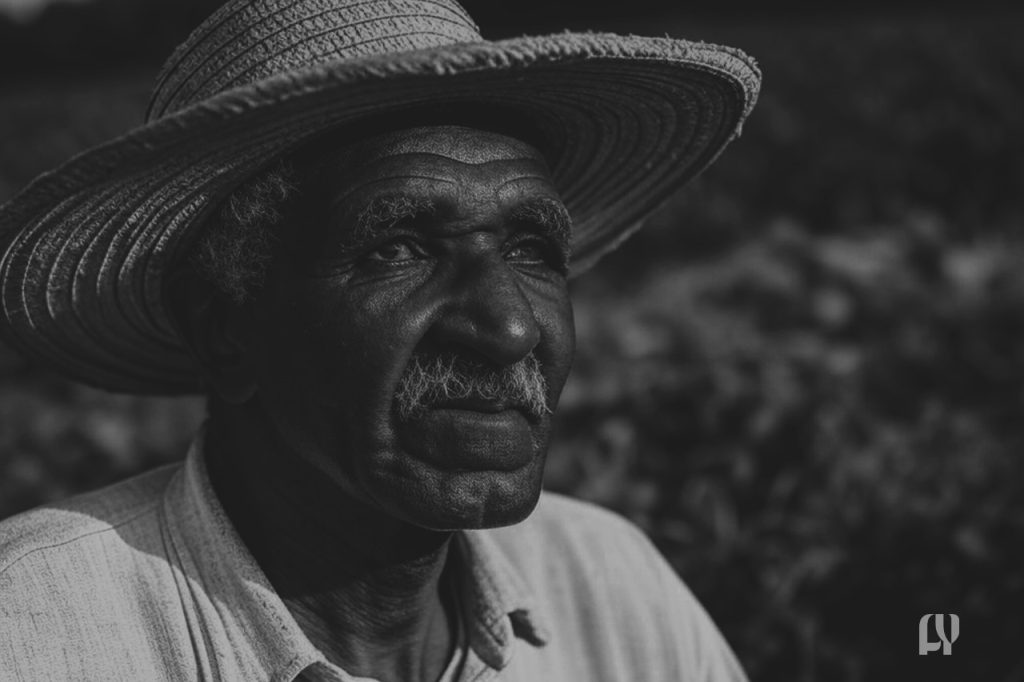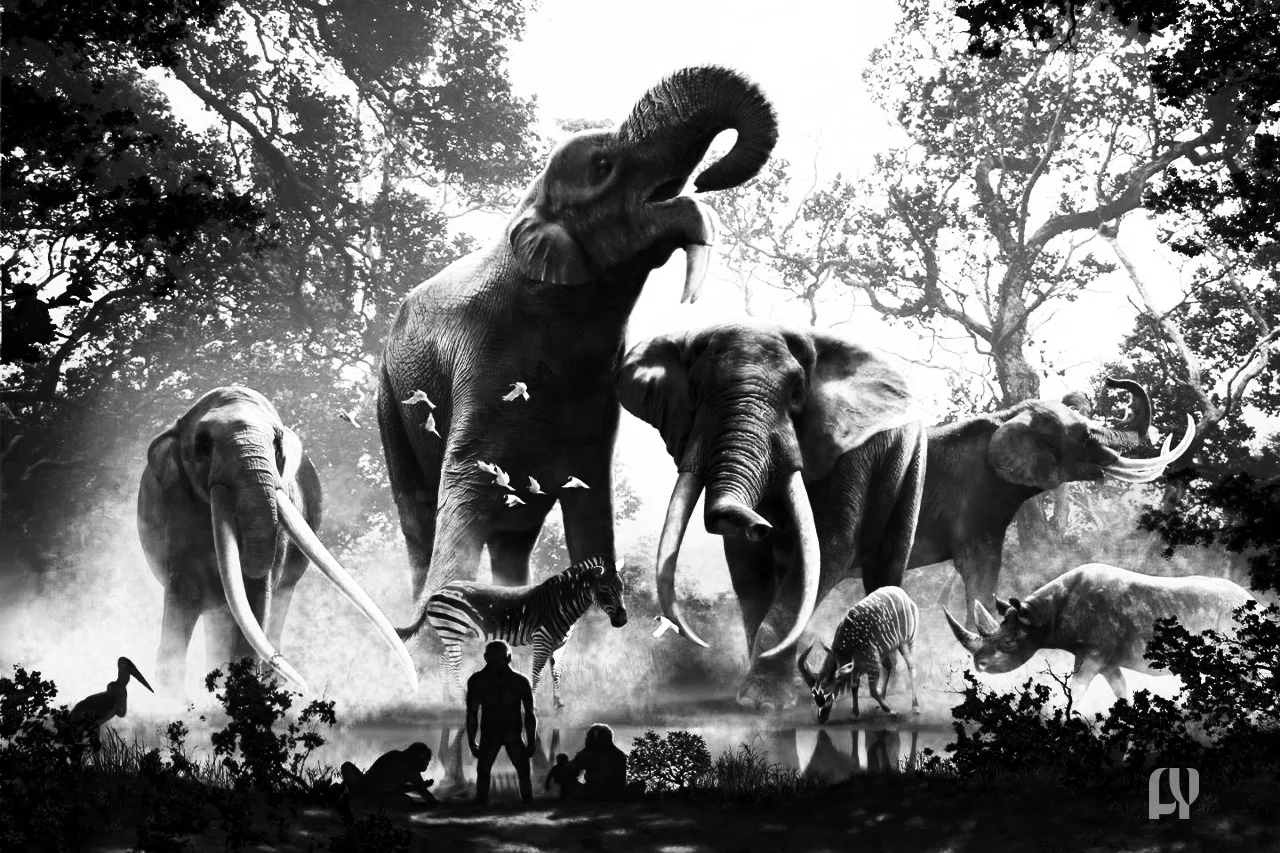George Washington Carver: Agricultural Innovation & Sustainable Farming
Introduction: The Roots of a Legacy
In the dusty fields of Diamond, Missouri, a boy once knelt to study a flower. That boy, born into the brutal grip of slavery around 1864, would become a beacon of hope for millions. Dr. George Washington Carver —scientist, educator, and humanitarian—did not merely invent peanut products or preach crop rotation.
He planted seeds of resilience, innovation, and dignity in soil trampled by prejudice. Today, the world grapples with climate crises and social inequality. Carver’s legacy blossoms anew. It reminds us that even the humblest peanut holds power when nurtured by vision.
- From Bondage to Botany: The Unlikely Journey
- Tuskegee’s Earthly Miracles: Science as Salvation
- The Man Behind the Microscope: Faith, Art, and Humanity
- A Global Harvest: From Alabama to Africa
- The Legacy Alive: Monuments, Minds, and Movements
- Conclusion: The Uncommon in the Common
- FAQs About George Washington Carver
From Bondage to Botany: The Unlikely Journey
George Washington Carver’s story begins in tragedy. Raiders kidnapped him as an infant alongside his mother and sister. He was later orphaned. Whooping cough left him frail. Moses Carver, his enslaver, reclaimed him in a swap for a racehorse, raising him and his brother James. Yet young George’s thirst for knowledge defied the era’s chains. He was denied entry to local schools because of his skin colour. Instead, he trekked 24 kilometres to a one-room school for Black children. He earned the nickname “the Plant Doctor” for reviving neighbours’ ailing crops.
Nature will show you her secrets if you love her enough.
His determination led him to Highland University in Kansas—only to be rejected upon arrival when administrators saw his race. Undeterred, he homesteaded a farm, studied art and music, and finally enrolled at Iowa State Agricultural College. There, his brilliance in botany shone. By 1896, he became Tuskegee Institute’s director of agricultural research, answering Booker T. Washington’s call: “Come, let us make the farm your laboratory.”
Tuskegee’s Earthly Miracles: Science as Salvation
The American South was a land scarred by cotton. Years of monocropping had leached nutrients from the soil, leaving farmers—many newly freed slaves—in poverty. Carver’s solution was radical yet simple: rotate cotton with nitrogen-rich peanuts and sweet potatoes. “Nature,” he said, “will show you her secrets if you love her enough.”

But convincing sceptical farmers required more than theory. Carver crafted “moveable schools,” waggons packed with seeds, tools, and homemade fertilisers, touring the countryside to teach sustainable techniques. His 44 practical bulletins were invaluable resources. Guides like How to Grow the Peanut and 105 Ways of Preparing it for Human Consumption were essential reading. They became bibles for desperate families. He distilled peanuts into milk, flour, ink, dyes, and even biofuels—over 300 uses in total. Yet he famously refused patents, believing knowledge should be “free as the air.”
Critics mocked his focus on “peanut milk” and “sweet potato starch,” but Carver’s vision transcended profit. He saw crop diversification as liberation from debt to cotton merchants. When boll weevils devastated crops in the 1920s, farmers who heeded Carver’s advice survived—and thrived.
The Man Behind the Microscope: Faith, Art, and Humanity
Carver’s genius was not confined to a lab. A devout Christian, he rose daily at 4 AM. He walked in the woods and called these strolls his “conversations with God.” He painted exquisite botanical art, crocheted lace, and lectured on moral courage. “Fear of failure,” he warned students, “is the enemy of success.”
His humility disarmed even segregationists. When invited to guide the U.S. Congress on tariffs in 1921, he faced a room of white lawmakers expecting a “primitive” man. Instead, Carver dazzled with a lecture on peanuts’ potential. He quipped, “If you go to a restaurant and ask for coffee, they serve you peanuts instead. They’ve started something!” The committee extended his time—a rare honour for a Black man in the Jim Crow era.
Yet fame never swayed his mission. He declined a $100,000 salary (roughly R1.5 million today) from Thomas Edison, preferring Tuskegee’s modest R1,200 annual wage. “It is not the style of clothes one wears,” he said, “but the life one lives that matters.”
A Global Harvest: From Alabama to Africa
Carver’s influence rippled far beyond Tuskegee. He exchanged letters with Mahatma Gandhi on sustainable agriculture and advised Henry Ford on soybean-based biofuels. During WWII, he pioneered peanut-based rubber substitutes to aid shortages. Yet his deepest impact lies in his philosophy: that science must serve the marginalised.
It is not the style of clothes one wears, but the life one lives that matters.
In South Africa, his techniques resonate deeply. Smallholder farmers, particularly in drought-stricken regions like the Karoo, have adopted crop rotation to revive exhausted lands. Organisations like the African Farmers’ Association cite Carver’s bulletins as blueprints for resilience. “He taught us,” says Limpopo farmer Naledi Khumalo, “that innovation begins with what’s in your hand, not what’s missing.”
The Legacy Alive: Monuments, Minds, and Movements
Carver’s death in 1943 drew front-page tributes, yet his true monument lives in everyday acts. The George Washington Carver National Monument in Missouri—the first U.S. park honouring a Black American—preserves his birthplace. Universities worldwide award scholarships in his name, while the U.S. Department of Agriculture’s Carver Awards celebrate agricultural innovation.
But his greatest legacy is the dismantling of stereotypes. In an era when Black minds were deemed inferior, Carver proved brilliance knows no colour. “He made the term ‘Black scientist’ no longer an oxymoron,” reflects Dr. Mae Jemison, the first African American woman in space.
Conclusion: The Uncommon in the Common
According to George Washington Carver, you can impact the world. An uncommon approach will draw notice. His comments are especially relevant now, as climate change and inequality put our willpower to the test.Carver’s legacy acts as a compass. It points toward ingenuity rooted in service. He transformed peanuts into plastics. He also empowered farmers with wisdom.

FAQs About George Washington Carver
What was George Washington Carver famous for?
George Washington Carver was famous for revolutionising agriculture through crop rotation. He invented over 300 uses for peanuts. He also advocated for sustainable farming practices.
What 300 things did George Washington Carver invent?
Carver developed over 300 products from peanuts. These include milk, flour, dyes, plastics, and biofuels. He also found innovative uses for sweet potatoes and soybeans.
Did Carver invent peanut butter?
No, George Washington Carver did not invent peanut butter, but he popularised peanuts and developed many peanut-based products.
What was George Washington Carver’s most famous quote?
One of his most famous quotes is, “When you do the common things in life in an uncommon way. You will command the attention of the world.”
Why is George Washington Carver’s legacy important today?
Carver’s legacy is important today for several reasons. His innovations in sustainable agriculture are crucial. Additionally, his commitment to uplifting marginalised communities remains vital in addressing climate change. This commitment also helps tackle food insecurity.
In South Africa’s townships and rural villages, where resilience is a daily art, Carver’s spirit endures. He reminds us that from the humblest soil—and the most fractured histories—hope can bloom. Forever.




